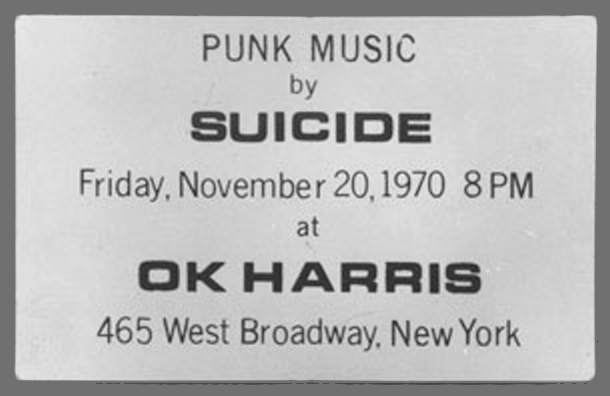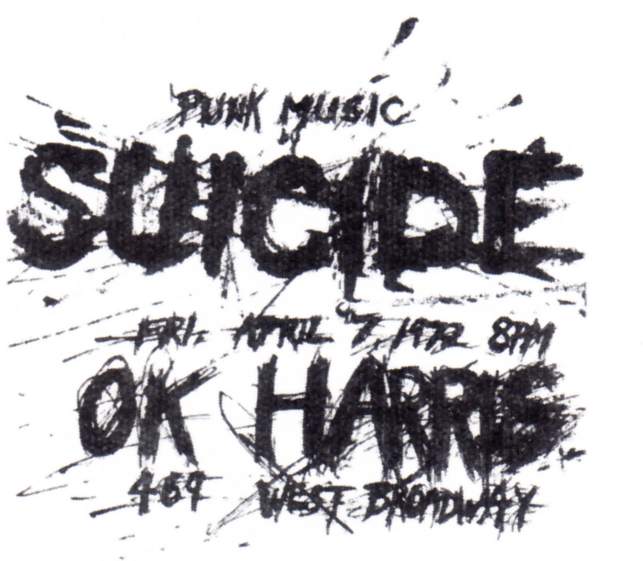Few bands fused dream and nightmare as succinctly, brutally and, yes, elegantly as Suicide, the stripped-down synth duo widely considered pioneers of No Wave and punk. (The band used the term “punk music” to describe their sound on a flyer for a 1970 gig at OK Harris gallery; it marked the first known use of “punk” to describe a burgeoning creative movement.)
Alan Vega, the band’s singer, died peacefully in his sleep yesterday. He was 78.

Punk music by Suicide: Flyer or 1970 show at OK Harris Gallery. Via From the Archives.
Longtime fan Henry Rollins broke the news via his website, and plans to dedicate his Sunday radio show to Vega’s groundbreaking artistic outfit.
Suicide’s brutal concision was, at least initially, a case of limited means. Speaking on the band’s origins, Vega said, “We started out with a $10 Japanese keyboard that Marty found somewhere. We could hardly get any sound out of it so we started introducing, was it an Electro Harmonix thing with bass boosters and treble boosters? The keyboard could be lined up with 5 or 6 of these things and that would jack up the sound because we almost couldn’t get any sound out of this thing. It was a necessity thing. Out came this incredible rush of sound that no-one has ever heard before or since. The sound was created out of necessity and we ran with it, man.”
Although the band would not release its debut until 1977, they spent years refining their distinctive, unique sound. Thurston Moore saw the band early on and was floored: “They were like electronic music terrorists on stage,” he told Red Bull Music Academy in 2015. “It was an assault on the audience physically and aurally. It was incredible.”
Vega’s family released an official statement, which concluded, “Alan’s life is a lesson of what it is to truly live for art. The work, the incredible amount of time required, the courage to keep seeing it and the strength to bring it forth — this was Alan Vega.”
Vega is survived by his wife Liz and son Dante.
Visuals via the amazing Suicide chronology at From the Archives.

